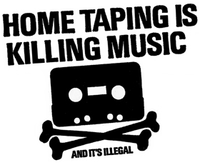In a strange reaction to recent sales drops the recording industry seems to be going after a niche market – and one that hardly hurts their financial well being at first glance. As reported at Arstechnica, several states are enacting legislation that makes it very very difficult to buy and sell used CDs.
There is legislation already in effect that dictates that if I were to sell a used CD to a store I would only be able to receive store credit for that CD. The store would then have to hold that CD in limbo for at least 30 days before they are able to sell it back to someone. Scratch Florida off my list of potential future residences.
All this seems to be a way for the recording industry to stem off piracy I suppose – though I am not sure used CDs is really where piracy is striking. But the article mentions an interesting aspect to the story – the Doctrine of First Sale. The Doctrine comfortably fits into the physical realm with such things as CDs. When I buy a CD I also obtain the right to sell said copyrighted work. But how does this translate into the digital world?
If you read the fine print, when you buy a track from some of the online music subscription services, particularly if you subscribe and receive a certain number of songs per period, you are not really buying the rights to that work. You’re really only renting the songs. If you cancel your subscription your music purchases go away. But some stores do allow you to buy the song and keep it permanently. So how does the Doctrine of First Sale work then? With the CD there is the assumption that when you sell it you no longer have a copy for yourself. In the digital world this is not true. You can make unlimited lossless copies of any song you own and sell it (legally or not) without losing your copy.
This has got to be scary to the recording industry – their lifeblood is creating and selling copies of copyrighted work. If anyone in the world can now do the same thing – what business can they hope to keep? But what if they were to whittle away at the consumer’s right to sell what they buy? What if they were to get legislation into the books that says that when a consumer sells a copyrighted work that it is laborious, subject to strange rules, and does not allow them to receive cash for it? What if they were to chip away at this Doctrine of First Sale until it too has to be updated to work with digital works?
Sounds to me like they have a plan here folks. Now lets watch it in action as it unfolds. What can you do? Gee, I dunno, seems to me that if you disagree with this leglislation that somebody out there should be told about your objections and concerns. Maybe someone who works in politics, and who relies on your votes to do so?
Another take might be that this is an attack on the used CD stores themselves. There’s a massive bond that needs to be paid up front in order to be able to sell them. The laws make it prohibitively difficult for people to sell used CDs (fingerprinting? come on!). As a person in the “Internet Age”, why would I bother selling to the local store when I can just hit ebay and get normal, plain old cash without all the bother? Or I could head on over to lala.com and trade it with someone else for $1.00. I’m sadened at the idea that we may see used CD stores disappear from the retail landscape – I think they represent part of an important part of a local music scene and their presence would be sorely missed.
Plus my plans to open up a store that includes selling used CDs as a service (along with the vital music matching service that the store would provide as a market differentiator, of course) would go up in flames.
